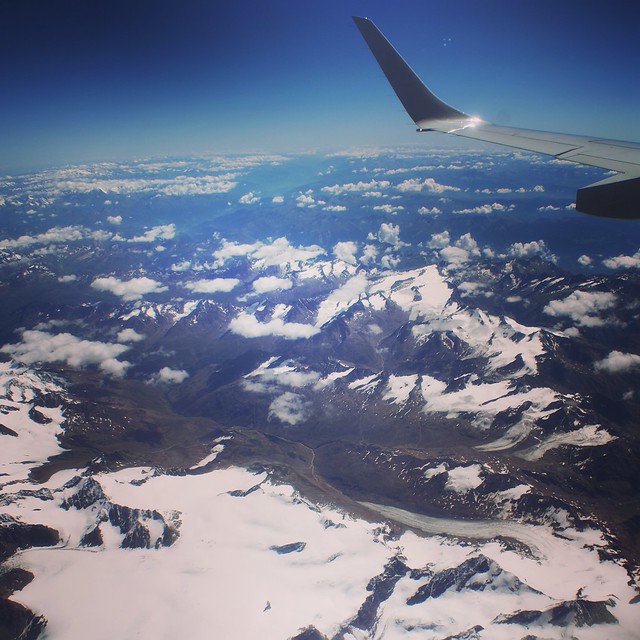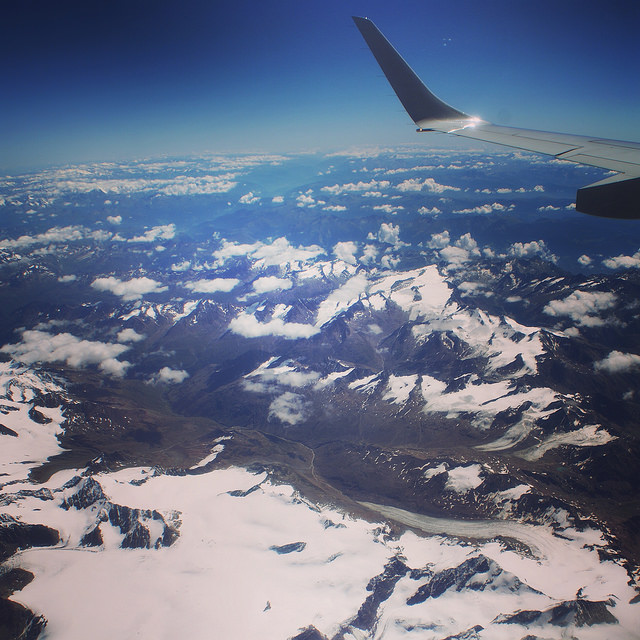By: Chris Knowles

Above: Glaciers in the Alps taken from high above in a jet airliner.
Yesterday, I read an article (1) in The Guardian about the dire threat to civilisation as we know it posed by Global Warming. Don’t get me wrong I know for a fact that Climate Change is real. I also know that it is highly likely that humankind is having an impact on our global climate.
What I don’t get is how people can know for absolute certainty whether this is a good or a bad thing. I also dislike the tone of the current debate and how dogmatic it has become. Things have got so bad that some on one side want to deny their opponents freedom of speech. Not only is this a danger to human rights, it is a danger to science.
The Guardian article (1) continues “February 2016 was likely the hottest month in thousands of years, as we approach the 2°C danger limit.” Notice the word “likely” which of course makes what is being said completely meaningless. I suppose it could be read as grudging acknowledgement that the facts don’t come out on any side of the argument.
It (1) goes on to talk in terms of temperatures in “pre-industrial times” and of “the Arctic’s “warmest-recorded winter”. What part of the 200 thousand years that Homo Sapiens has walked the Earth is regarded as “pre industrial”? It should be all of it except the last few hundred years. What part of the pre-industrial period does the ‘Little Ice Age’ of the Middle ages represent? What does The Guardian make of the Mid Holocene Warm Period? There were no jet planes or gas guzzling humvees darting about back then.
Actual records began only a few hundred years ago, though these have been supplemented with evidence derived from ice cores. In geological terms records began only nanoseconds ago. During my days studying geography and geology at university timescales of millions and not hundreds or thousands of years were the norm.
It is therefore probably too early to say whether any potential human influence is dangerous or beneficial. It could be that human influence has prevented the natural cooling of the Earth with all the impact that such cooling could have on things like food supply.
The current debate on climate change focuses on the last few hundred years of formal records. It focuses on the impact that human beings have made since the Industrial Revolution which also represents a period of a mere few hundred years.
The debate, if done honestly and without recrimination could lead to the development of technology that may ultimately allow humanity to actually choose an optimal climate. We would then be in a position to live in a world that has never existed, a world of a stable and unchanging climate.
This would certainly make the Anthropocene the most unique and radical epoch of geological time. What wonders could follow? – the terraforming of other planets where the air is currently unbreathable and of expanding the reach of Gaia across the Galaxy? This could thus allow humanity to realise its ecological destiny and ultimate purpose.
—
















